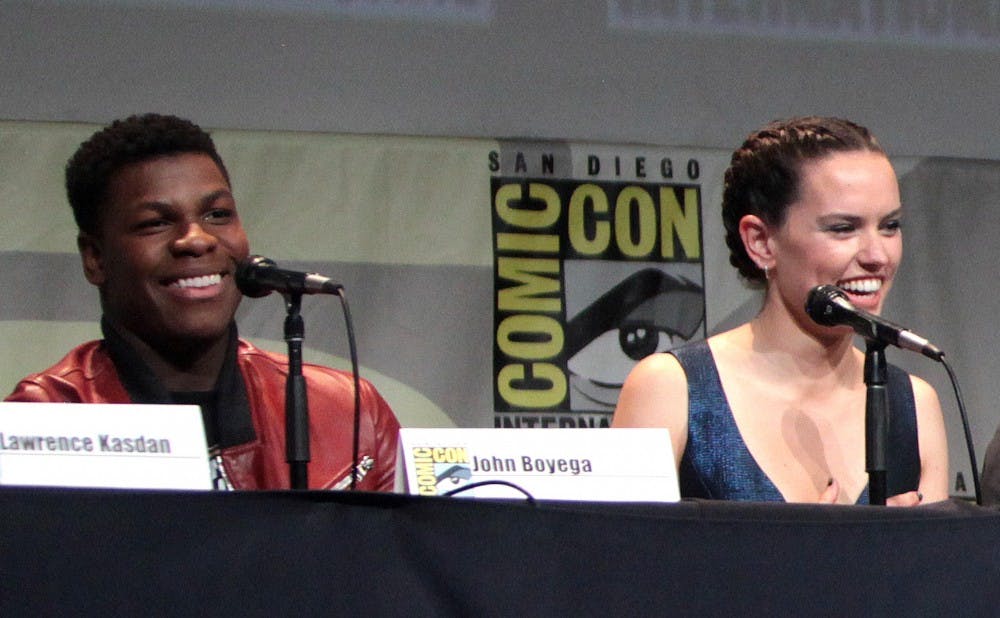“Star Wars: The Last Jedi” hit theaters a little less than two weeks ago, with the second-largest opening weekend ever. It grossed more than $220 million in the United States that weekend, a record topped only by its precursor in the “Star Wars” series, “The Force Awakens.”
It’s the latest installment in an epic series whose first film was released just over 30 years ago, in May 1977. At that time, it was revolutionary — science fiction was uncommon in major movies, and the special effects and set made the worlds it portrayed seem real. Since then, the “Star Wars” universe has ingrained itself into the public consciousness, with countless references to it in other movies, TV shows and books.
The franchise has developed a major fan base, with an entire wiki, called “Wookieepedia,” devoted to all things Star Wars. It boasts 139,000 pages, 82,000 photos and 21,000 discussions on a variety of topics, including the films and the creatures in them.
Many of those fans have been following the series since the beginning. According to statista.com, 36 percent of the audience of “The Last Jedi” so far has been 35 years old or older, people who would have been around the right age to see “A New Hope” in theaters as well. Although I’m not one of those original fans, and the first Star Wars movie I ever watched was “The Force Awakens,” I never really thought that I would have trouble understanding the new films. And I didn’t. Even though I have only recently watched the original trilogy, I already knew major plot points of those films and recognized many of the characters and the music.
Watching the original trilogy this past week, I noticed similarities between those movies and the recent sequels. The sequels star Rey, a young Jedi from the remote planet of Jakku.
At the end of “The Force Awakens,” Rey has landed on a remote planet and found Luke, the master Jedi who is to be her teacher, just as Luke did with Yoda in “The Empire Strikes Back.” In “The Last Jedi,” then, she follows a story arc that runs parallel to Luke’s, with a dark side counterpart in Kylo Ren whom she attempts to convert to the light. Just as Darth Vader kills the Emperor when Vader captures Luke, Kylo Ren kills the Supreme Leader when he and Rey are in the same situation. However, rather than being truly turned as Vader was, Kylo Ren then proceeds to take over and offer Rey a place beside him in ruling the galaxy.
While these stories share many similarities, the themes that have begun to emerge in the sequel trilogy differ from those in the original. One line in particular struck me when watching “The Last Jedi.” After Poe Dameron, a Resistance commander, leads a counterattack against the First Order that, while effective in its goal, costs nearly the entire fleet, Leia demotes his position from commander to captain, saying that the Resistance doesn’t need heroes; it needs leaders.
Even Luke, the hero of the original trilogy, espouses beliefs in the new movie that turn away from the importance of heroes. “It’s time for the Jedi to end,” he says, showing that he no longer believes that the Jedi are important or necessary — he believes that the idolization and prominence of the Jedis has led to a similar rise of a powerful dark side along with a reliance on the heroes of the story. This belief likely stems from what Luke perceives as his own failures when training Ben Solo, who became Kylo Ren.
Rey’s character shows the new direction of the sequel trilogy, as well. Unlike Luke and Leia, who were the children of Anakin-turned-Darth Vader, Rey comes from “nowhere,” and her parents were “nobody,” despite the various fan theories that cropped up after “The Force Awakens.” This emphasizes that the hope and the leaders of the Rebellion are no longer those great heroes. Instead, it’s the ordinary people who will take up the mantle of the struggle against the First Order.
Get The Chronicle straight to your inbox
Signup for our weekly newsletter. Cancel at any time.

